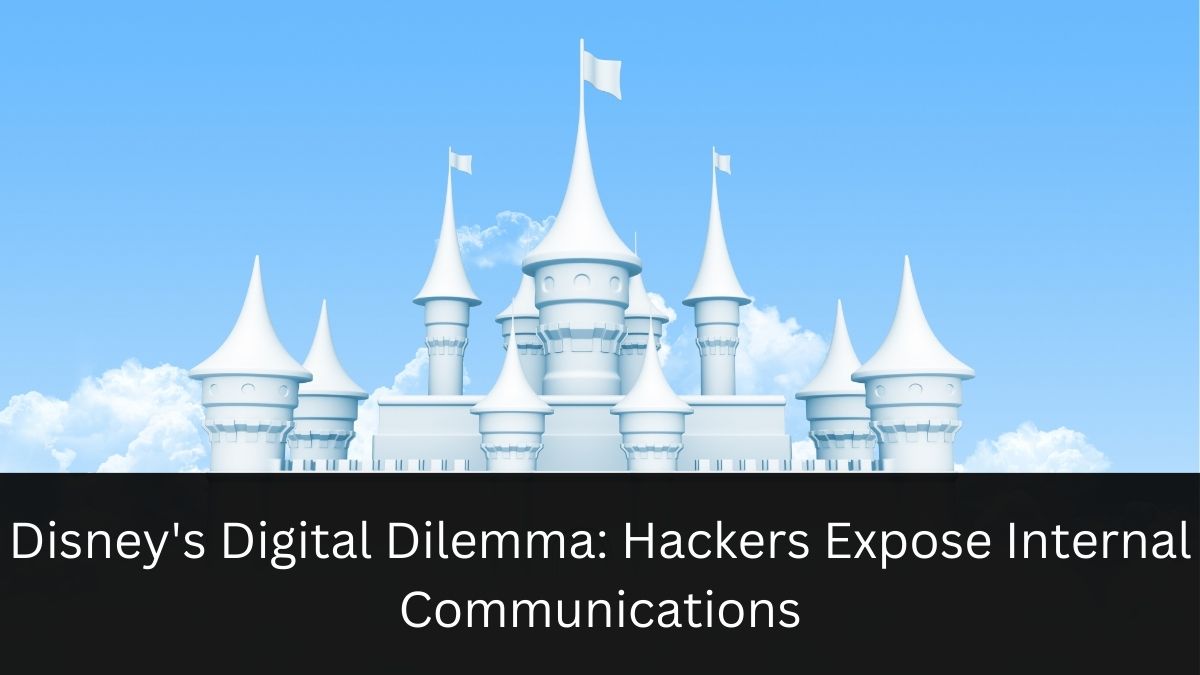Press Release
Disney’s Digital Dilemma: Hackers Expose Internal Communications

In an era where digital security is paramount, even entertainment giants like Disney find themselves vulnerable to cyber threats. A recent hack has exposed a trove of internal communications from the House of Mouse, raising concerns about corporate espionage and the safety of sensitive information in the digital age.
The Breach: What Happened?
On a seemingly ordinary day in July 2024, Disney’s digital fortress was breached. An anonymous hacking group calling themselves “Nullbulge” claimed responsibility for infiltrating Disney’s internal Slack workplace collaboration system. The hackers boasted about publishing data from thousands of Slack channels, including computer code and details about unreleased projects.
While the full extent of the breach remains unclear, the leaked information spans a wide range of topics:
- Ad campaign discussions
- Studio technology insights
- Interview candidate assessments
- Computer code
- Details about unreleased projects
- Corporate website maintenance conversations
- Software development discussions
- ESPN’s emerging leader programs
- And oddly enough, photos of employees’ dogs
Some of this data reportedly dates back to at least 2019, highlighting the potential long-term impact of such a breach.
The Hackers: Who is Nullbulge?
Nullbulge bills itself as a “hacktivist” group, claiming to advocate for artist rights and choose targets based on social, economic, or political values. Their decision to target Disney, they say, stems from disagreements with the company’s handling of artist contracts, approach to AI, and perceived disregard for consumers.
This incident shines a light on the growing ideological rifts within the entertainment industry, particularly concerning the rapid advancements in artificial intelligence. Many artists and activists worry that their creative work is being used without compensation to power new AI tools, raising questions about fair use and intellectual property rights in the digital realm.
The Method: How Did They Do It?
According to Nullbulge, they gained access to Disney’s systems through a manager of software development. The group claims to have compromised this employee’s computer twice – once using a video game add-on, and a second time through an undisclosed method.
This tactic, known as a Trojan horse, involves hiding malicious software inside seemingly harmless programs. It’s a stark reminder of the importance of cybersecurity awareness at all levels of an organization, from entry-level employees to high-ranking managers.
The Impact: What Does This Mean for Disney?
The public disclosure of internal messages, code, and documents can be highly disruptive for any company, and Disney is no exception. This breach risks undermining their commercial objectives and could potentially:
- Expose sensitive business strategies to competitors
- Reveal details about upcoming projects before they’re ready for public announcement
- Damage the company’s reputation and erode public trust
- Lead to legal issues if personal information of employees or customers was compromised
Disney has acknowledged the situation, with a spokesperson stating simply, “Disney is investigating this matter.” However, the full ramifications of this breach may not be known for some time.
The Precedent: Echoes of Sony’s 2014 Hack
This incident brings to mind the infamous 2014 hack of Sony Pictures, which sent the company into chaos. In that case, hackers linked to North Korea not only damaged internal systems but also publicly released email messages, including embarrassing exchanges involving Sony’s co-chairman Amy Pascal. The fallout from that incident led to Pascal stepping down from her position months later.
While the Disney hack doesn’t appear to be as severe as the Sony incident (at least from what we know so far), it serves as a sobering reminder of the potential consequences of such breaches.
The Lessons: What Can We Learn?
This incident offers several valuable lessons for businesses and individuals alike:
- Cybersecurity is Everyone’s Responsibility: From top executives to entry-level employees, everyone needs to be vigilant about digital security.
- The Power of Internal Communications: Slack and similar platforms have become central to many companies’ operations. This incident highlights the need to carefully consider what information is shared on these platforms.
- The Double-Edged Sword of Technology: While tools like Slack enhance collaboration, they also create new vulnerabilities if not properly secured.
- The Importance of Rapid Response: Disney’s quick acknowledgment of the situation is a good first step. How they handle the aftermath will be crucial.
- The Need for Ongoing Security Audits: Regular security assessments can help identify and address vulnerabilities before they’re exploited.
The Future: Where Do We Go From Here?
As we move further into the digital age, incidents like this are likely to become more common. Companies must invest in robust cybersecurity measures, foster a culture of digital awareness among employees, and have comprehensive incident response plans in place.
For consumers, this serves as a reminder to be mindful of the information we share online and with whom we share it. It’s also a call to stay informed about the digital practices of the companies we entrust with our data.
In conclusion, while the full impact of this hack on Disney remains to be seen, it serves as a wake-up call for businesses and individuals alike. In our interconnected world, digital security is not just an IT issue – it’s everyone’s concern. As we continue to navigate the complexities of the digital age, vigilance, education, and adaptation will be key to staying one step ahead of those who seek to exploit our digital vulnerabilities.
